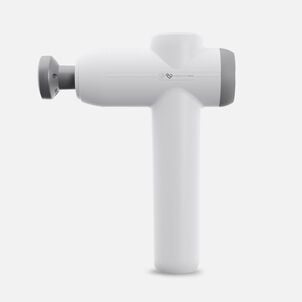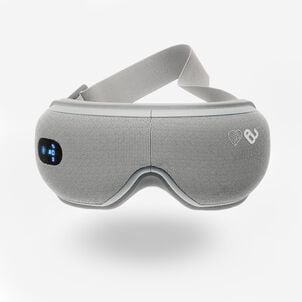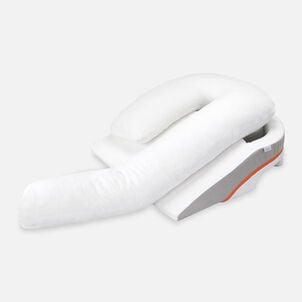The purpose of a health savings account (HSA) is to save tax-free funds to cover future medical expenses. But when is the right time to withdraw money from the account? Should you use your HSA funds to cover every medical expense you ever have, or only the big ones? Is it ever okay to withdraw money from your HSA for non-medical expenses?
The thing about personal finances is that it's just that -- personal. We all have different goals and circumstances when it comes to our money, and the situation gets even more complicated when you're talking about the intersection of finance and healthcare.
(Now, as you know, we're not financial professionals, nor should this piece be construed as financial advice. Because finances are so personal, you should definitely speak with a qualified tax or financial adviser before making spending decisions that fit your needs.)
But we are HSA holders, and have friends and family who are, too. As a general rule of thumb, we've seen that if you can afford to leave the money in your HSA, it's a good idea to do it. Unless it's truly an emergency, we've rarely seen any reason to withdraw money from your HSA unless you're using it to pay for a qualified medical expense.
Let's look at a few scenarios, based on some real-life examples to better understand HSA withdrawals:

Shawna
Shawna gets her health insurance from her employer, and one of the options is an HSA-qualified plan. Shawna's employer also offers a more traditional plan with a lower deductible, but the out-of-pocket maximum is actually slightly higher than the out-of-pocket maximum on the HSA-qualified plan. And Shawna's employer also contributes $1,000 to her HSA if she enrolls in the HSA-qualified plan - a nice bonus!
Shawna knew that she was going to be having surgery this year. She doesn't have a lot of extra cash lying around, but she knew that regardless of which health plan she picked, she was going to have to pay the full out-of-pocket limit, which amounted to about $3,000.
So Shawna enrolled in the HSA-qualified plan. Her employer contributed $1,000 to her HSA, and she set up her payroll deductions so that she'd have enough money in her HSA to cover the out-of-pocket costs by the time she had surgery.
Should Shawna withdraw money from her HSA? Most likely, yes. She'll be using pre-tax dollars to pay her out-of-pocket costs, which saves her several hundred dollars. And since she doesn't have much in the way of other savings, the HSA is realistically the only choice.
In other words, that's why it's there! Shawna can withdraw the money, pay her medical bills, and focus on her recovery.
Aidan
Aidan wants (needs?) a new car. The dealership will give him a better rate if he has a hefty down payment, but most of his money is tied up in his retirement account and his HSA. Aidan is healthy and doesn't anticipate medical expenses in the immediate future. Should he withdraw money from his HSA to pay for his new car?
Probably not!! If Aidan withdraws money from his HSA and uses it to buy a car, he's going to be in for a painful surprise when he files his tax return: He'll likely have to pay income tax on the money he withdrew, plus an extra 20% tax.
But there's an exception here to keep in mind. What if Aidan had been incurring modest medical bills ever since he opened his HSA, paying them with non-HSA money, and keeping all the receipts? He can tally up all the medical expenses he's paid since he opened his HSA (including the cost of things like sunscreen and bandages, as long as he's been keeping receipts), and reimburse himself for all of it at one time.
He can then use the money for whatever he wants — including the down payment on his new car — because he's really just reimbursing himself for medical expenses he's already incurred.
The importance of having accurate receipts here can't be overstated. Aidan absolutely shouldn't use this approach if he doesn't have proof that he's actually reimbursing himself for medical expenses incurred since he opened his HSA.
Maurice
Maurice has been contributing to his HSA for a few years, but it's not his only liquid savings. He's also got a healthy bank account, and lives below his means. He finds out that he's going to need knee surgery, and his out-of-pocket expenses will be about $4,000.
Maurice can pull the money out of his HSA, just like Shawna did. But there's nothing that says he has to. Instead, he can choose to pay out-of-pocket costs using his other savings, and just let the HSA continue to grow, tax-free, over time. The money will be there when he needs it, and he can reimburse himself at any point in the future, just like Aidan. And if he's thinking very long-term, the money could even be used to pay for costly long-term care several decades down the road.
Those are just a few examples, but the takeaway point is that there's no single right answer when it comes to whether or not you should pull money out of your HSA. You might have heard people say that you'll be using your HSA to cover all of your medical bills below your deductible, and that might be the approach you need to take.
But it's not the only approach. The more you understand about HSA rules, the better you can plan the intersection between your finances and your health care — in the present, the future and the distant future.


.png)
















